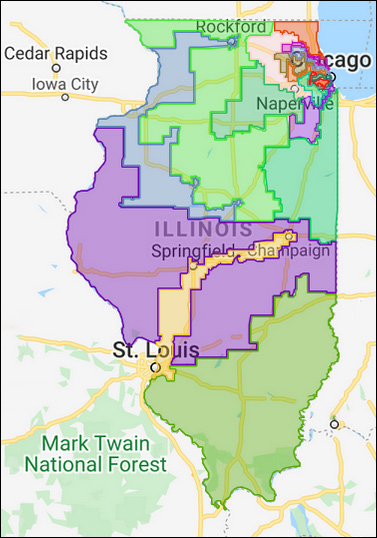Nov. 2, 2021 — On Friday, the Illinois legislature voted to send a new congressional redistricting map to Gov. J.B. Pritzker (D), altering what they had drawn at the beginning of last week. This third map design came largely because of objections from both Reps. Sean Casten (D-Downers Grove) and Marie Newman (D-La Grange) who had been paired in one Chicago suburban district for the 2022 party primary.
A recent court decision rejecting the Illinois state legislative maps influenced the Democratic leadership to draw a second congressional map. A 10-year argument as to whether a second Hispanic seat should be drawn in Chicago this time became the principle discussion point.
In the 2011 redistricting plan, such a seat wasn’t drawn, and also wasn’t part of this year’s original Illinois congressional map. Seeing the Mexican American Legal Defense and Educational Fund (MALDEF) already threatening to sue over the first draw even before a final map had been adopted clearly was a factor in creating a second plan that did feature an additional Hispanic seat.
While this new third congressional version did assuage Rep. Casten and MALDEF, such was not the case for freshman Rep. Newman. She remains paired, but now with Rep. Jesus “Chuy” Garcia (D-Chicago) in an inner city Hispanic district. This is an even more difficult situation for Newman. She appears to be a leadership target likely because she defeated Chicago machine Democrat Dan Lipinski in the 2020 Democratic primary, and this latest map could well be a payback for her challenging the local party authorities.
Another political casualty is Rep. Adam Kinzinger (R-Channahon). Facing a paired situation with Rep. Darin LaHood (R-Peoria) in a Republican primary for the newly drawn 16th District — mostly foreign territory for Kinzinger in a seat that stretches from the Wisconsin border all the way to central Illinois — the congressman announced on Friday that he will not seek re-election to a seventh term.


